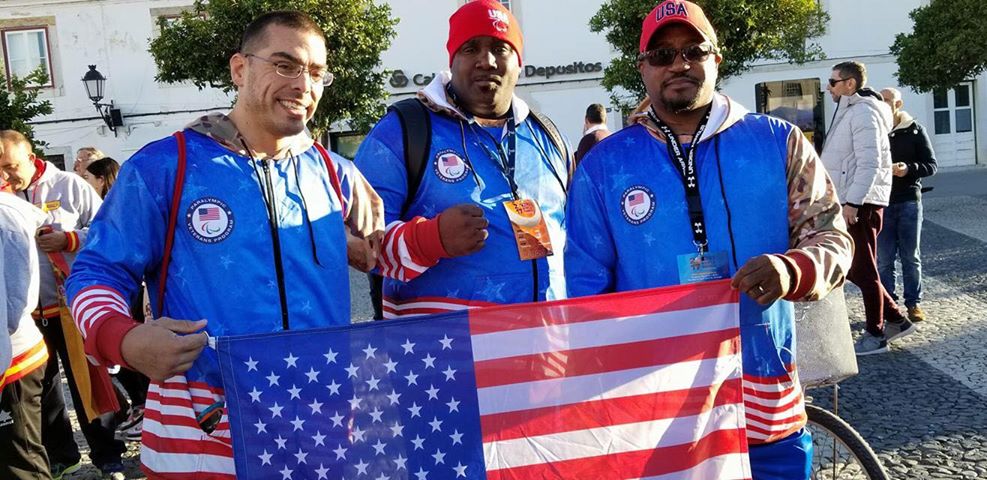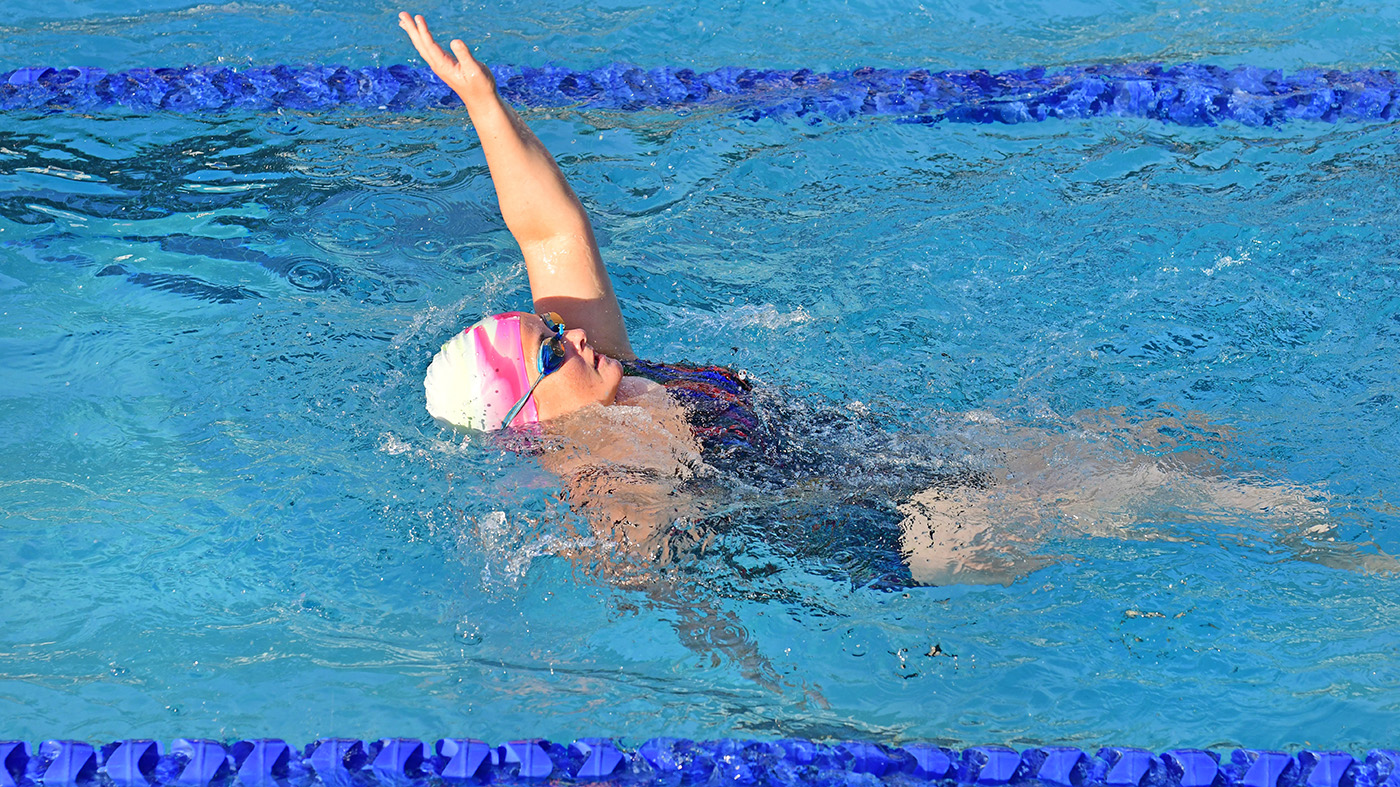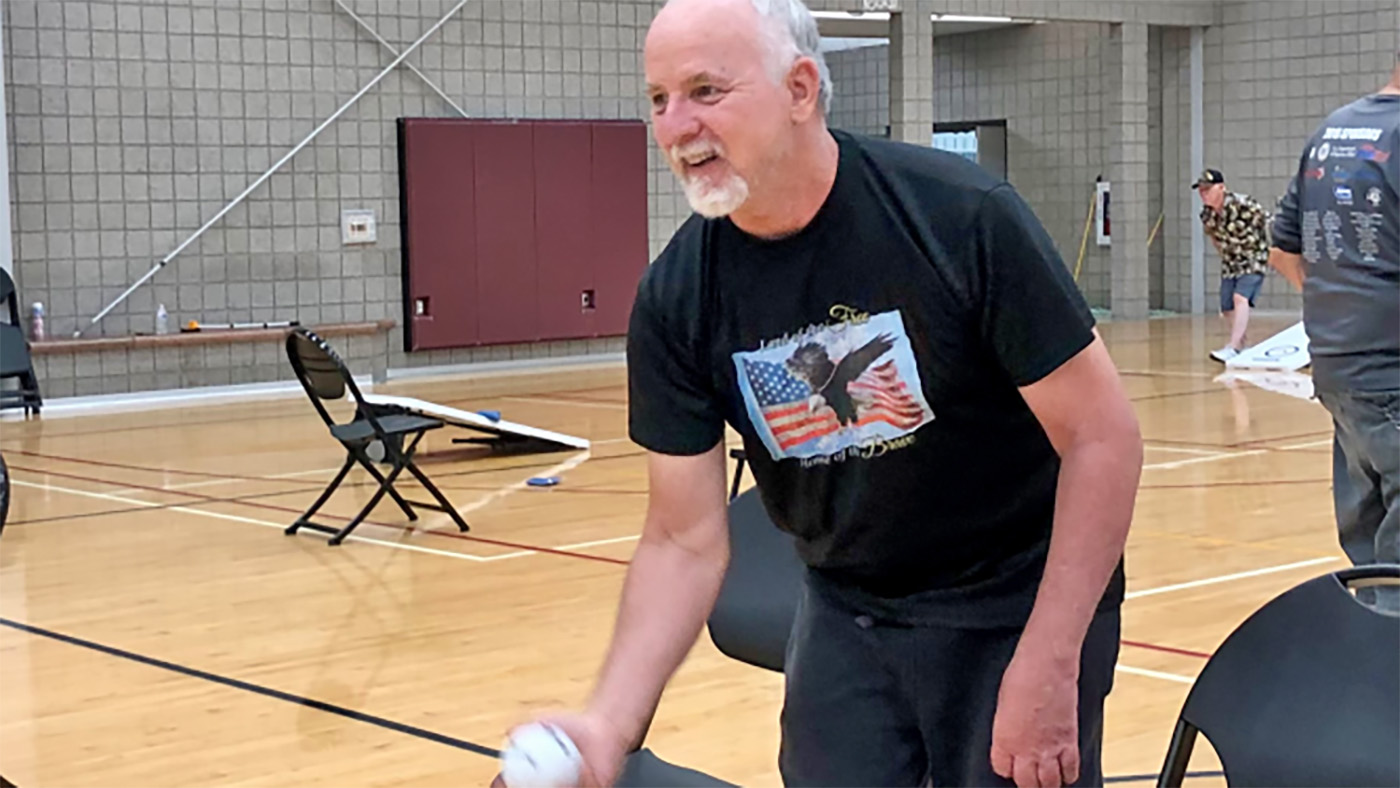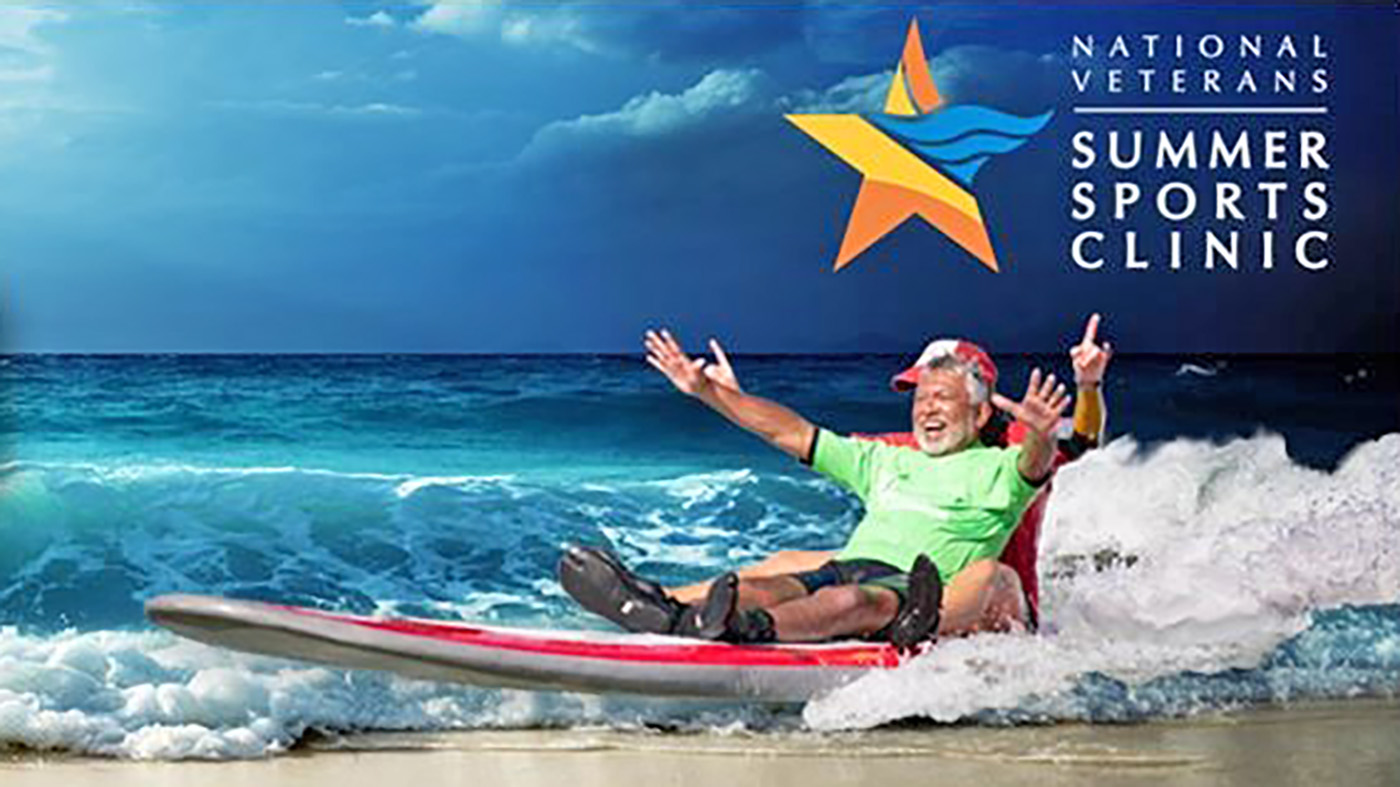As it turns out, not everybody was kung fu fighting. But Johnny Birch was — at least a self-taught version — that kept getting him in trouble.
Looking back, he said if it wasn’t for martial arts — the real stuff he eventually learned — he’d probably be dead.
The sport that saved his life just earned him a bronze medal at the ParaPan American Games in Lima, Peru. Birch, along with Corbin Stacey and Mike Kacer, are three disabled Army Veterans who represented the U.S. tae kwon do team in Lima. A fourth U.S. athlete, Evan Medell, took gold and will go to the Paralympics in Tokyo next year.
All three Army Veterans receive support to defray the cost of their training through VA’s Veterans Monthly Training Stipend Program by the National Veterans Sports Program.
They shared their stories about their journey and experiences in Lima.
Johnny Birch: ‘This feels like my second chance at this, still doing something for my country.’
“My stepbrother, my cousin, they’re dead now, and that’s where I’d be — dead, on drugs or in jail,” said Birch, who gets care at the Lebanon VA Medical Center.
“Been doing this since I was 12 years old. I was the worst in the family. Everyone hated me. Grew up in a home, dad wasn’t there, there were a lot of issues at school, a lot of issues at home, no guidance.”
But there was Kung Fu Theater on the television.
“My teachers were Bruce Lee and Chuck Norris. The problem is I’d try those moves in school and get in a whole lot more trouble.”
His mom signed him up for tae kwon do. That made the difference.
“My instructor taught me discipline, made sure the grades were up. I wasn’t allowed to train unless I was getting a ‘B’ or better.”
But when his mom fell behind on payments, Birch was told to leave.
“I’d come back every day, just to watch. He got tired of seeing me there, so the instructor printed up flyers and said, ‘Pass these out. You get one person to sign up, and you can train.’
“I took them back to the projects and everybody laughed at me and told me, ‘Black people don’t take karate.’ My instructor told me not to give up.
“I was carrying the flyers, walking toward the library, walking right toward this woman. I’m black, I’m from the hood and she’s a white lady. She sees me and the first thing she does is she clutches her purse and looks scared. In tae kwon do, we’re taught to say, ‘Sir’ and ‘Ma’am.’ I went up to her and gave my whole spiel and told her if one person signed up, I could do it, so she took a flyer.”
The woman paid for a year’s tuition. After that he paid his way by teaching and cleaning the school.
Birch later joined the Army and at his first duty station at Camp Hovey, Korea, he heard about an all-Army karate team. He went to the gym and found one of the trainers.
For the next three years, it became his full-time job, competing against the best in Korea, traveling around the world and putting on exhibitions for the president and other VIPs. It also led to a traumatic brain injury when he broke several bricks with his head during a military demonstration. In 2003, he injured a tendon in his right foot. Surgery caused nerve damage and he lost range of motion in the foot.
His weight ballooned from 173 to 240 at discharge, then 346.
“The TBI gave me ridiculous migraines,” he said. “Almost makes you lay down and cry. There was depression. I was so depressed, I didn’t want to practice. I didn’t want to do anything. Slowly lost interested in everything.
“But there’s always a light at the end of the tunnel. Don’t give up. It’s easier to give up. It’s harder to keep going.”
When doctors warned him about diabetes, he tried VA’s MOVE program, but wanted something more. Birch rediscovered the passion by teaching martial arts to special needs children. His weight is back down to 315 but he wants to lose more.
“Corbin will yell at me, and say, ‘They cut that leg off, we’re gonna have problems. I’m training with these guys and these exercises are killing me, and I look at them and Mike, and he’s doing the same exercise with one arm. Bear crawls, push-ups, one arm! I don’t need to cry.”
Birch said he was a long shot to medal, but got focused when his first match was against a hometown favorite from Lima.
“By the end of the match, the crowd switched and was yelling, ‘Yonny! Yonny!’ I destroyed him. He had to stop fighting in the third round.”
Birch went to the semifinals where he fought “toe to toe” with Medell.
“Everything he did, I kept up wit him,” he said. “It may have been my best fight ever, but at the end, he scored a couple more points.
“This feels like my second chance at this,” he said. “I feel like, although I’m not enlisted anymore, I’m still representing sports for Veterans. Still doing something for my country.”
Corbin Stacey: ‘I learn to work it out and learn how to adapt, just like we did in the military’

Corbin Stacey has been working since 2014 to recruit Veterans for the U.S. paralyzed tae kwon do team.
Doctors still aren’t sure what caused Stacey’s massive injury. Maybe it was a series of issues that finally took their toll, or a freak accident.
His body went limp. He fell over in the shower and couldn’t move his right side. It wasn’t a stroke. X-rays and MRIs showed damage to his C4, C5 and C6 vertebrae.
The Army Reservist and 6th degree black belt who taught tae kwon do to soldiers and children was now in a wheelchair for six months with a grim prognosis.
“Then I was sitting in bed and my feet start burning,” he said.
“Hey, you’re getting your strength back. You’re just a miracle,” the doctor told him. “This is a one-in-a-million injury and recovery.”
“To me, that was the magic ticket,” he said. “If I can’t win the lottery, at least I had this.”
But as he recovered, he was rear-ended in a car accident.
“It was just a double whammy on top of everything else,” he said. “It was rough. I was back in a chair for a year. I was lucky. I had some guys around me who kept me up and kept me going.”
He’s walking now but deals with lingering paralysis.
“I learn to work it out and learn how to adapt, just like we did in the military,” said Corbin, who gets his care at the Cleveland VA Medical Center. “I have a lot of arm weakness, and sometimes my leg goes out. Sometimes it doesn’t do what I want it to do. I’ll go to kick, and it just doesn’t work, so I have to adjust fast and start kicking with the other leg.”
At 49, Stacey said his glory years are behind him. He doesn’t expect to get an Olympics spot, but that’s OK.
“It’s not about me going,” he said. “It’s about keeping this program going, getting other guys into this and getting medals that way. My injuries are catching up to me every day. I’m just happy to be a part of the team.”
Mike Kacer: Redemption and healing from PTSD

Michael Kacer lost his arm and was almost killed in a mortar attack in Afghanistan and said fighting for the U.S. team has helped him recover.
Mike Kacer remembers the whistle of the mortar just before it exploded.
He remembers the blinding white light.
He remembers how people thought he would die, and how it all turned to slow-motion.
“I’ve been in a couple different scenarios where we were mortared and, to be honest, every situation has been different,” said the Iraq and Afghanistan Veteran who gets care at the Durham VA Medical Center. “This time, initially, there was no sense of urgency, they were hitting so far away, but by the third and fourth one, they were getting closer. You could hear them walking them in.
“The next one hit outside the compound wall, about 18 feet to the right of me,” he said. “That’s when the master sergeant told everybody to get their gear. I remember I even joked about telling someone if they wanted to go out and get my gear.”
The sixth was a direct hit.
“When you hear the whistle, you know it’s going to hit you,” Kacer said. “There was no doubt in my mind. There wasn’t time to be scared.”
Besides losing his left arm, he had a shattered jaw, 24 broken bones in his face and six shrapnel injuries and has dealt with the after-effects.
“Look, I suffer with depression, anxiety and stress and all that. I have my good days and bad days, and I seek mental health. I am a very big advocate for getting mental health help. We’re taught to bury it, and sadly, that’s why the statistics are what they are. But we need the help and the support system. My fellow Veterans are my support system. My family is my support system.
“The great thing about this sport is it’s all kicking,” Kacer said. “I have both my legs, so essentially, this makes it easy to compete. It gives me something to focus on now. Now that I see I can perform at this high of a level, I want that ring, I want that title.”
Although he fell short in Lima, Kacer has put it in perspective.
“To be honest, just seeing the road the other athletes paved just to be there, considering where I came from, it’s just mind blowing,” he said. “I fought real hard to get where I’ve been the last two years. I came close, and I still want to win. But despite losing, I still won because I was able to represent the U.S. I was able to make some headway in making this a permanent sport in the Paralympics.”
Topics in this story
More Stories
West Virginia mom builds confidence at the National Veterans Wheelchair Games.
Air Force Veteran Mark Wager overcame a stroke and is now competing in the 2024 National Veterans Golden Age Games.
Clinic offers a wide range of adaptive sports activities tailored to Veterans with physical and mental challenges.







